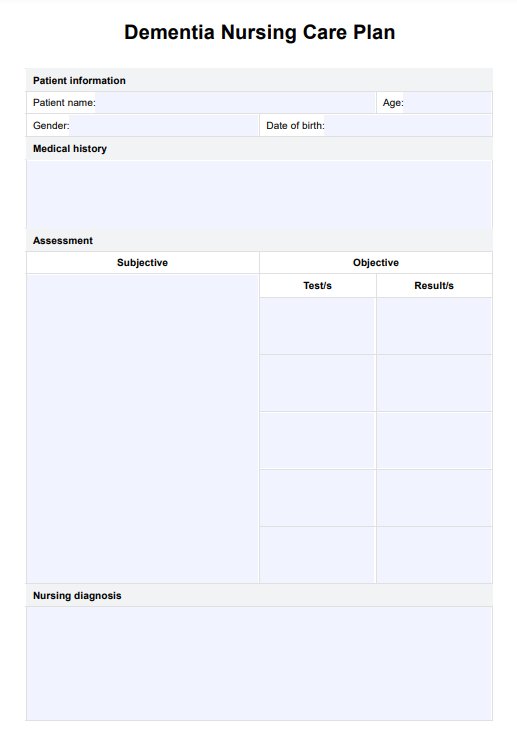To write a care plan for a dementia patient, begin by conducting a comprehensive assessment that includes the patient's medical history, cognitive abilities, daily functioning, and personal preferences. Set clear, achievable goals that address both physical and emotional well-being. Outline specific interventions and establish a schedule for regular reviews and updates to the care plan to adapt to the patient's changing needs over time.

Dementia Nursing Care Plan
Explore our Dementia Nursing Care Plan Template with practical examples. Download the free PDF to enhance patient care in dementia nursing.
Dementia Nursing Care Plan Template
Commonly asked questions
Dementia Nursing Care Plan Templates are used whenever a nurse cares for a patient with dementia, particularly for newly diagnosed patients, for ongoing dementia management, and for preventing dementia complications.
Nurses use Dementia Nursing Care Plan Templates as a guide to develop individualized care plans for dementia patients and communicate it with other practitioners and caregivers. This can also include additional guidelines in providing patient and family education, or information on support groups and other resources tailoring them to each patient's needs and circumstances.
EHR and practice management software
Get started for free
*No credit card required
Free
$0/usd
Unlimited clients
Telehealth
1GB of storage
Client portal text
Automated billing and online payments











